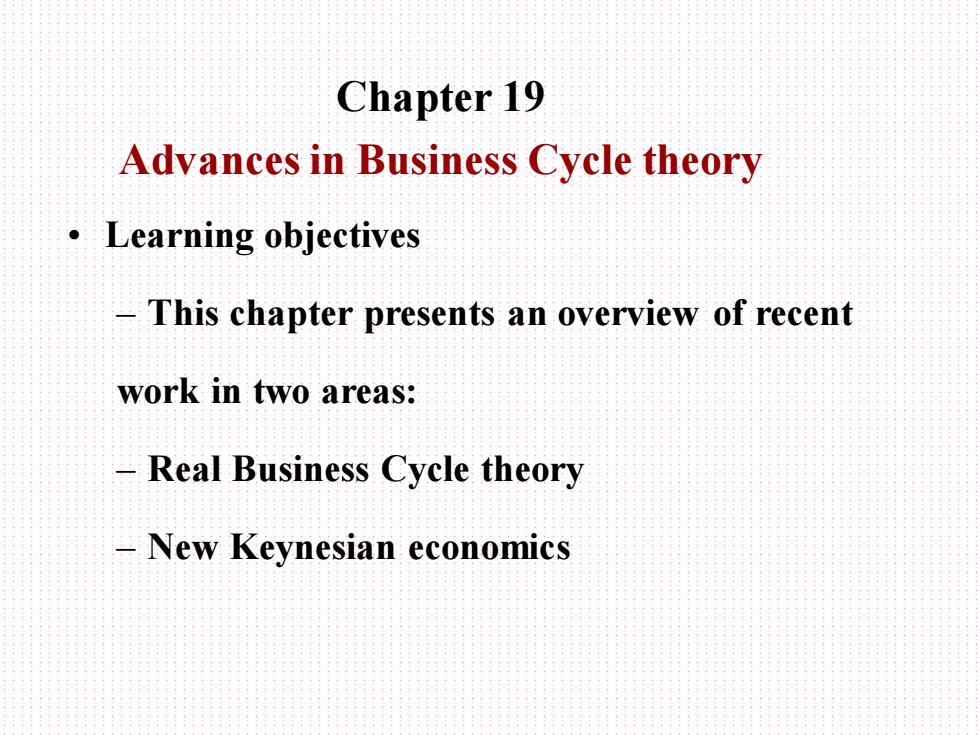
Chapter 19 Advances in Business Cycle theory Learning objectives This chapter presents an overview of recent work in two areas: Real Business Cycle theory -New Keynesian economics
Chapter 19 Advances in Business Cycle theory • Learning objectives – This chapter presents an overview of recent work in two areas: – Real Business Cycle theory – New Keynesian economics
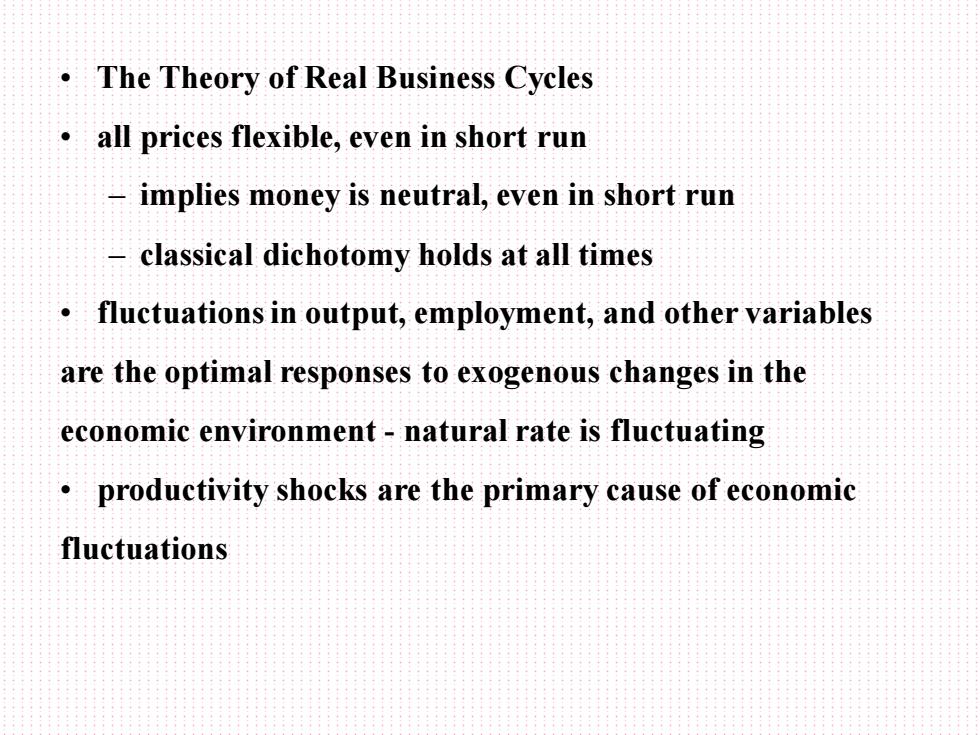
The Theory of Real Business Cycles all prices flexible,even in short run implies money is neutral,even in short run classical dichotomy holds at all times fluctuations in output,employment,and other variables are the optimal responses to exogenous changes in the economic environment-natural rate is fluctuating productivity shocks are the primary cause of economic fluctuations
• The Theory of Real Business Cycles • all prices flexible, even in short run – implies money is neutral, even in short run – classical dichotomy holds at all times • fluctuations in output, employment, and other variables are the optimal responses to exogenous changes in the economic environment - natural rate is fluctuating • productivity shocks are the primary cause of economic fluctuations
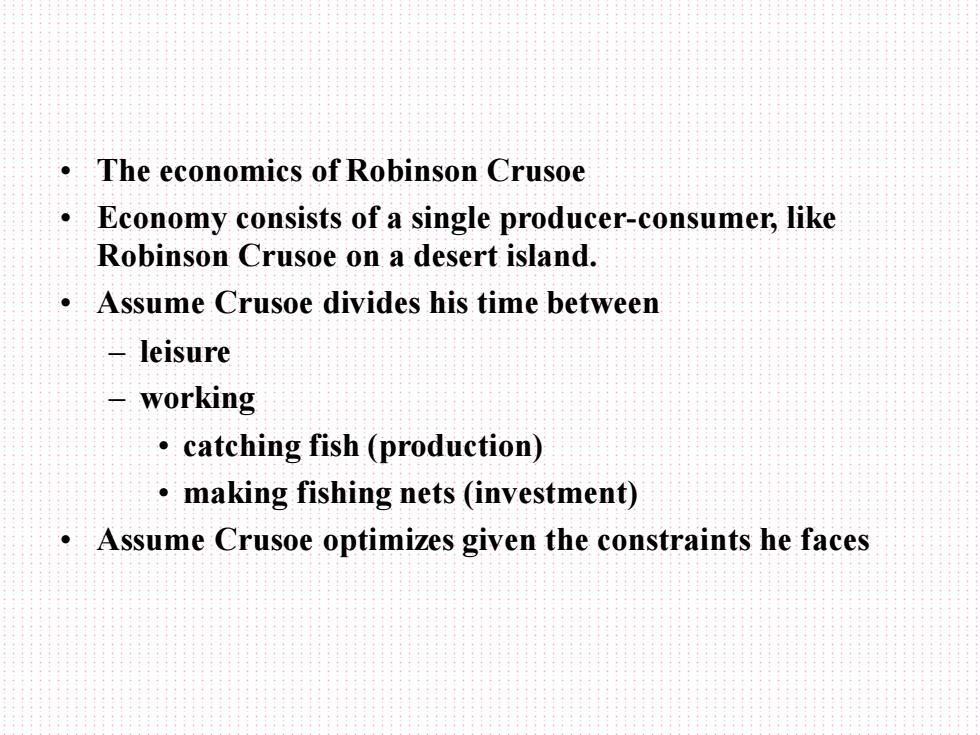
The economics of Robinson Crusoe Economy consists of a single producer-consumer,like Robinson Crusoe on a desert island. Assume Crusoe divides his time between leisure working catching fish(production) .making fishing nets (investment) Assume Crusoe optimizes given the constraints he faces
• The economics of Robinson Crusoe • Economy consists of a single producer-consumer, like Robinson Crusoe on a desert island. • Assume Crusoe divides his time between – leisure – working • catching fish (production) • making fishing nets (investment) • Assume Crusoe optimizes given the constraints he faces
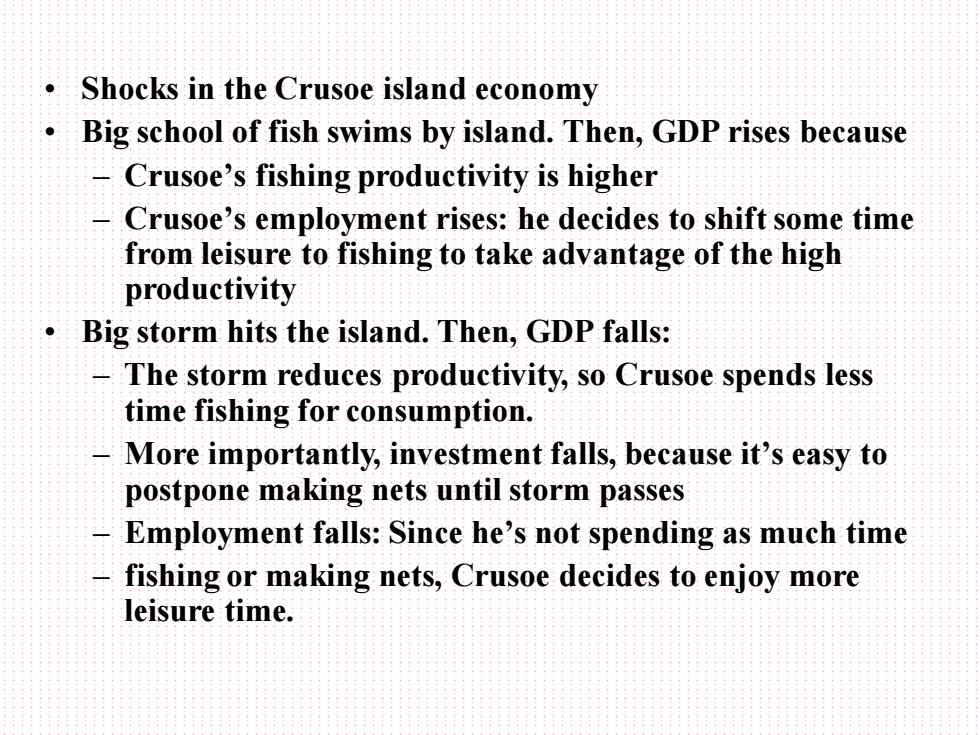
Shocks in the Crusoe island economy Big school of fish swims by island.Then,GDP rises because Crusoe's fishing productivity is higher Crusoe's employment rises:he decides to shift some time from leisure to fishing to take advantage of the high productivity Big storm hits the island.Then,GDP falls: The storm reduces productivity,so Crusoe spends less time fishing for consumption. More importantly,investment falls,because it's easy to postpone making nets until storm passes Employment falls:Since he's not spending as much time fishing or making nets,Crusoe decides to enjoy more leisure time
• Shocks in the Crusoe island economy • Big school of fish swims by island. Then, GDP rises because – Crusoe’s fishing productivity is higher – Crusoe’s employment rises: he decides to shift some time from leisure to fishing to take advantage of the high productivity • Big storm hits the island. Then, GDP falls: – The storm reduces productivity, so Crusoe spends less time fishing for consumption. – More importantly, investment falls, because it’s easy to postpone making nets until storm passes – Employment falls: Since he’s not spending as much time – fishing or making nets, Crusoe decides to enjoy more leisure time
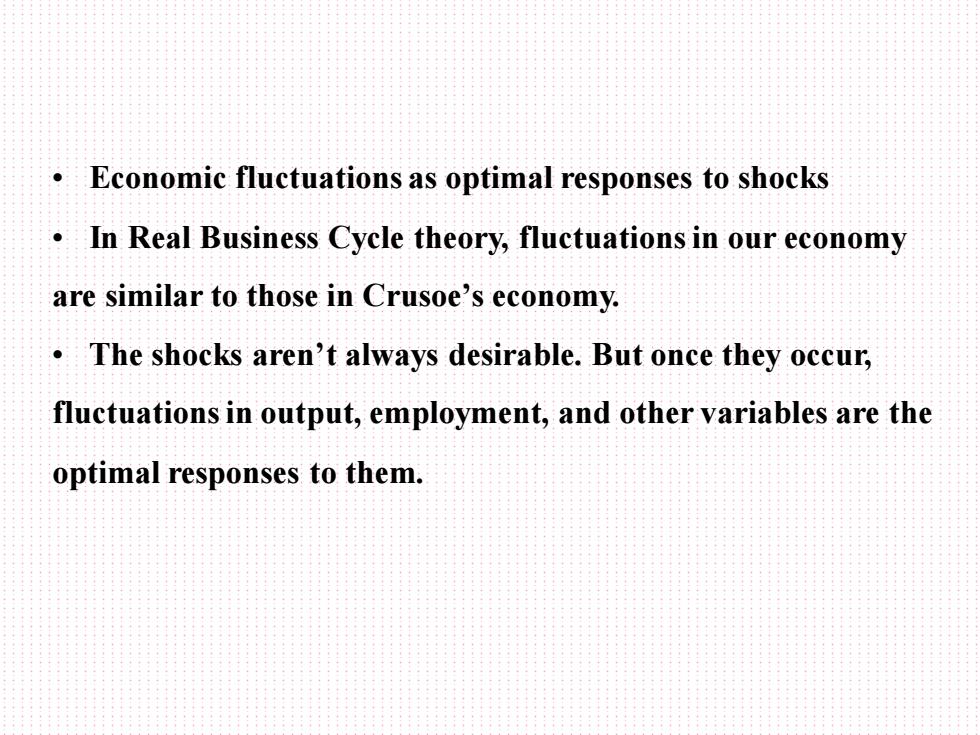
Economic fluctuations as optimal responses to shocks In Real Business Cycle theory,fluctuations in our economy are similar to those in Crusoe's economy. The shocks aren't always desirable.But once they occur, fluctuations in output,employment,and other variables are the optimal responses to them
• Economic fluctuations as optimal responses to shocks • In Real Business Cycle theory, fluctuations in our economy are similar to those in Crusoe’s economy. • The shocks aren’t always desirable. But once they occur, fluctuations in output, employment, and other variables are the optimal responses to them